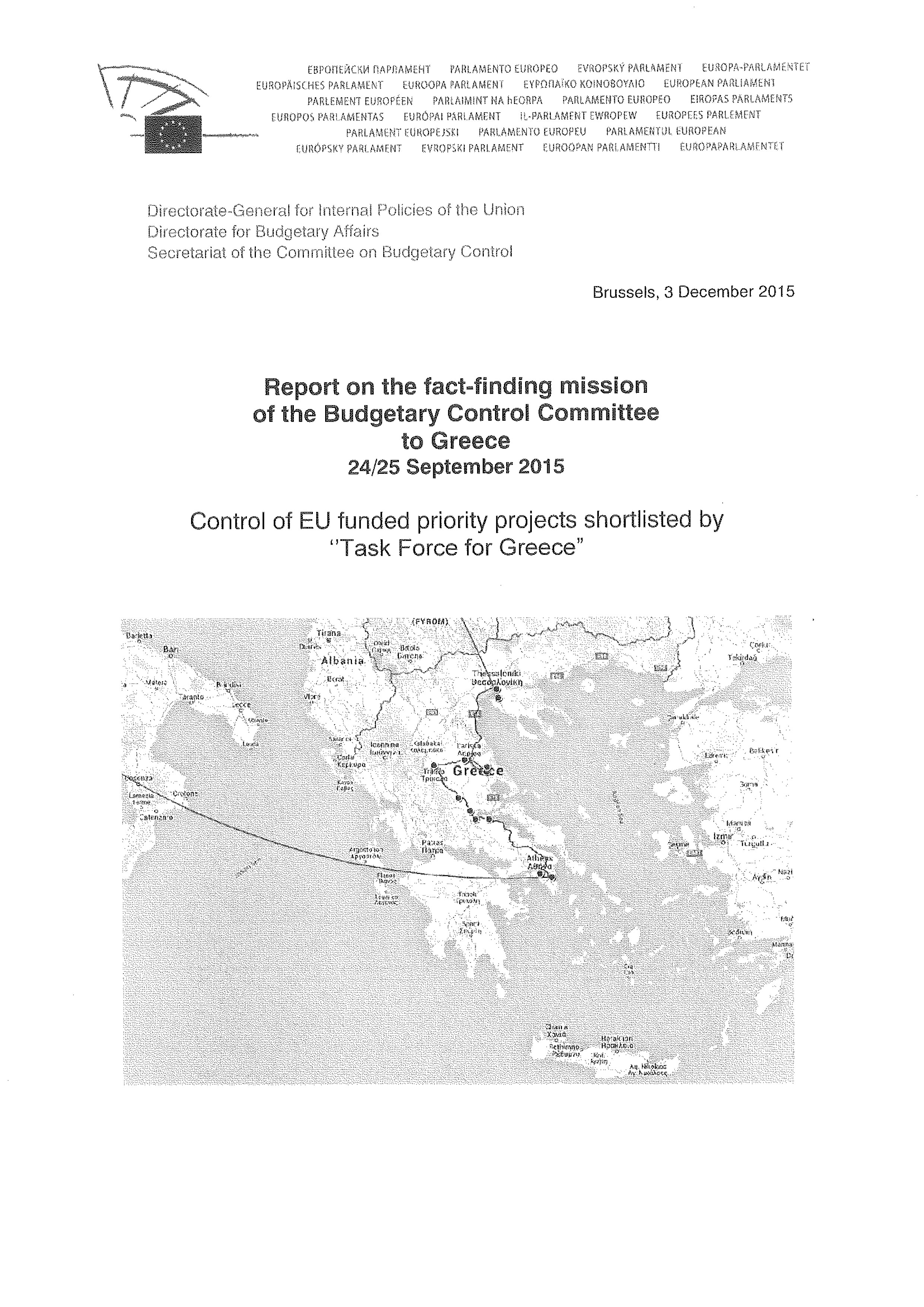Despite misgivings, EU readies subsidies for troubled Greece; Transportation programmes – metro, highways – top list
The European Parliament on December 3 will release a 28-page report on seven EU funded priority projects shortlisted by the “Task Force for Greece,” according to a document made available to New Europe.
The report by the Directorate-General for Internal Policies of the Union, Directorate for Budgetary Affairs and Secretariat of the Committee on Budgetary Control to be released tomorrow follows the results of a delegation to Greece, sent by the Budgetary Control Committee, which studied the source of Greek problems. The Committee analysed the 181 priority projects highlighted by the “Task Force for Greece” of the European Commission as problematic.
After a careful selection procedure, seven have been chosen for in-field examination: The construction of the Thessaloniki metro (€1200 million of EU funds); the rehabilitation of the Karla Lake (€42 million); the construction of Central Greece (E65) motorway – part Xiniada-Trikala (€900 million); the completion of the new double high-speed railway line Tithorea-Lianokladi-Domokos (€ 930 million); the e-ticket system in Attica (€35 million); the Greek cadaster (€28 million); the Greek national register (€42 million).
Greece has a long history of EU-funded projects, which were not fully completed within the given timeline and have been prolonged or repaid to the EU budget due to delays in their implementation. The Greek financial crisis and weakening economy aggravated the situation.
The Committee noted that it was surprised to discover that both the regional and local administration were not at all or partially involved in the projects even though they would be mostly influenced by their outcome. A clear example was the Thessaloniki metro where the construction was decided by Athens. The Committee also cited lack of coordination between the various implementing projects that cost money and led to heavy delays. Frequent changes of government and recurring electoral periods also caused delays.
The Committee issues a set of recommendations for implementing the EU-funded projects for Greece and plans to visit the Mediterranean country in the upcoming three-four years in order to see whether progress has been made in implementing these projects and EU funds and funds have been appropriately used.




















